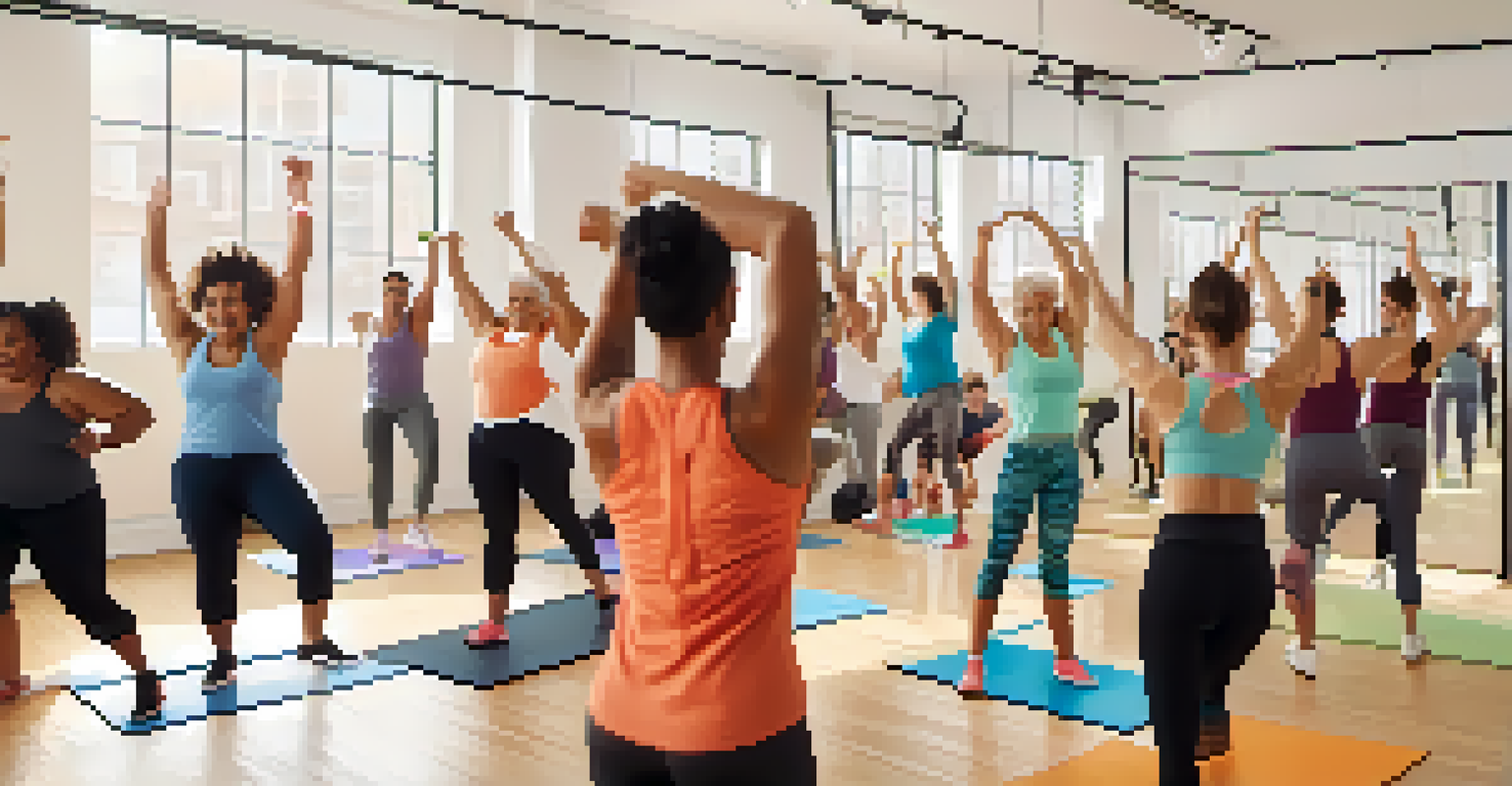Setting Fitness Goals for Enhanced Bone Health

Understanding the Importance of Bone Health
Bone health is crucial for overall well-being, especially as we age. Strong bones support our body, protect organs, and facilitate movement. They also store minerals, like calcium, that are vital for various bodily functions.
The greatest wealth is health.
As we get older, our bones naturally lose density and strength, increasing the risk of fractures and osteoporosis. This is why focusing on bone health through fitness is not just a trend, but a necessary part of a healthy lifestyle.
By setting specific fitness goals aimed at strengthening bones, we can mitigate these risks and improve our quality of life. Let’s explore how to create effective fitness goals that prioritize bone health.
Setting SMART Goals for Bone Health
When it comes to setting fitness goals, using the SMART framework can be incredibly effective. SMART stands for Specific, Measurable, Achievable, Relevant, and Time-bound. For example, instead of saying, 'I want to exercise more,' a SMART goal would be, 'I will do weight-bearing exercises for 30 minutes, three times a week for the next month.'

This structured approach helps clarify your intentions and makes it easier to track progress. By being specific and measurable, you can see how your efforts contribute to better bone health over time.
Prioritize Bone Health with Fitness
Engaging in weight-bearing exercises is essential for strengthening bones and preventing osteoporosis as we age.
Achieving these goals requires a commitment to regular evaluation. Adjusting your goals as you progress not only keeps you motivated but also ensures that they remain relevant to your health needs.
Incorporating Weight-Bearing Exercises
Weight-bearing exercises are key to enhancing bone health because they create stress on the bones, prompting them to strengthen. Activities like walking, jogging, dancing, and resistance training are great options. They help stimulate bone formation and improve overall bone density.
Take care of your body. It's the only place you have to live.
Even simple activities like climbing stairs or carrying groceries can contribute positively. The idea is to engage in activities that force your bones to work against gravity, thereby promoting bone health.
When setting fitness goals, try to include a variety of weight-bearing exercises. This not only prevents boredom but also targets different muscle groups and bone areas, maximizing benefits.
The Role of Nutrition in Bone Health
While exercise is vital, nutrition plays a pivotal role in maintaining bone health. Calcium and vitamin D are two essential nutrients that help build and maintain strong bones. Foods like dairy products, leafy greens, and fish are excellent sources of these nutrients.
Setting a goal to incorporate more calcium and vitamin D-rich foods into your diet can enhance your fitness regimen. For instance, you might aim to eat at least one serving of leafy greens daily or include fortified foods in your meals.
Nutrition Supports Strong Bones
Incorporating calcium and vitamin D-rich foods into your diet is crucial for maintaining and enhancing bone health.
Don’t forget about hydration; staying well-hydrated supports overall bodily functions, including those that help maintain bone density. By pairing your fitness goals with a nutritious diet, you create a holistic approach to bone health.
Monitoring Progress and Making Adjustments
Tracking your progress is crucial for staying motivated and ensuring your fitness goals are effective. Consider keeping a journal or using an app to log your workouts, nutrition, and how you feel. This method allows you to see patterns and adjust your goals as needed.
If you notice certain exercises are becoming too easy or not yielding results, it might be time to increase the intensity or try something new. Additionally, regular check-ins with a healthcare provider can offer insights into your bone health and help guide your fitness journey.
Remember, the goal is to build a sustainable fitness routine that not only enhances your bone health but also fits into your lifestyle. Adjusting your approach based on your progress is a sign of growth and commitment.
Staying Motivated Through Community Support
One of the most effective ways to stay committed to your fitness goals is by engaging with a community. Whether it’s joining a fitness class, participating in group activities, or simply sharing your journey with friends, support can make a significant difference.
Having workout buddies or being part of a group can provide encouragement, accountability, and even a dose of friendly competition. Sharing successes and challenges with others fosters a sense of community and keeps you motivated to stick to your goals.
Stay Motivated with Community
Joining a fitness community can provide support and accountability, making it easier to stick to your bone health goals.
Consider setting group goals or challenges that focus on bone health. This not only makes the journey enjoyable but also reinforces the importance of collective effort in achieving individual health outcomes.
Consulting with Healthcare Professionals
Before embarking on a new fitness journey, especially one focused on bone health, consulting with healthcare professionals is wise. They can assess your bone density and overall health, providing tailored advice based on your unique needs and circumstances.
A physical therapist or a fitness coach specializing in bone health can offer valuable insights into safe and effective exercises. They can help you design a fitness plan that aligns with your goals while minimizing the risk of injury.

Regular check-ups can also help track your bone health over time. This professional guidance ensures you’re on the right path and adjusting your goals as necessary for optimal bone strength.